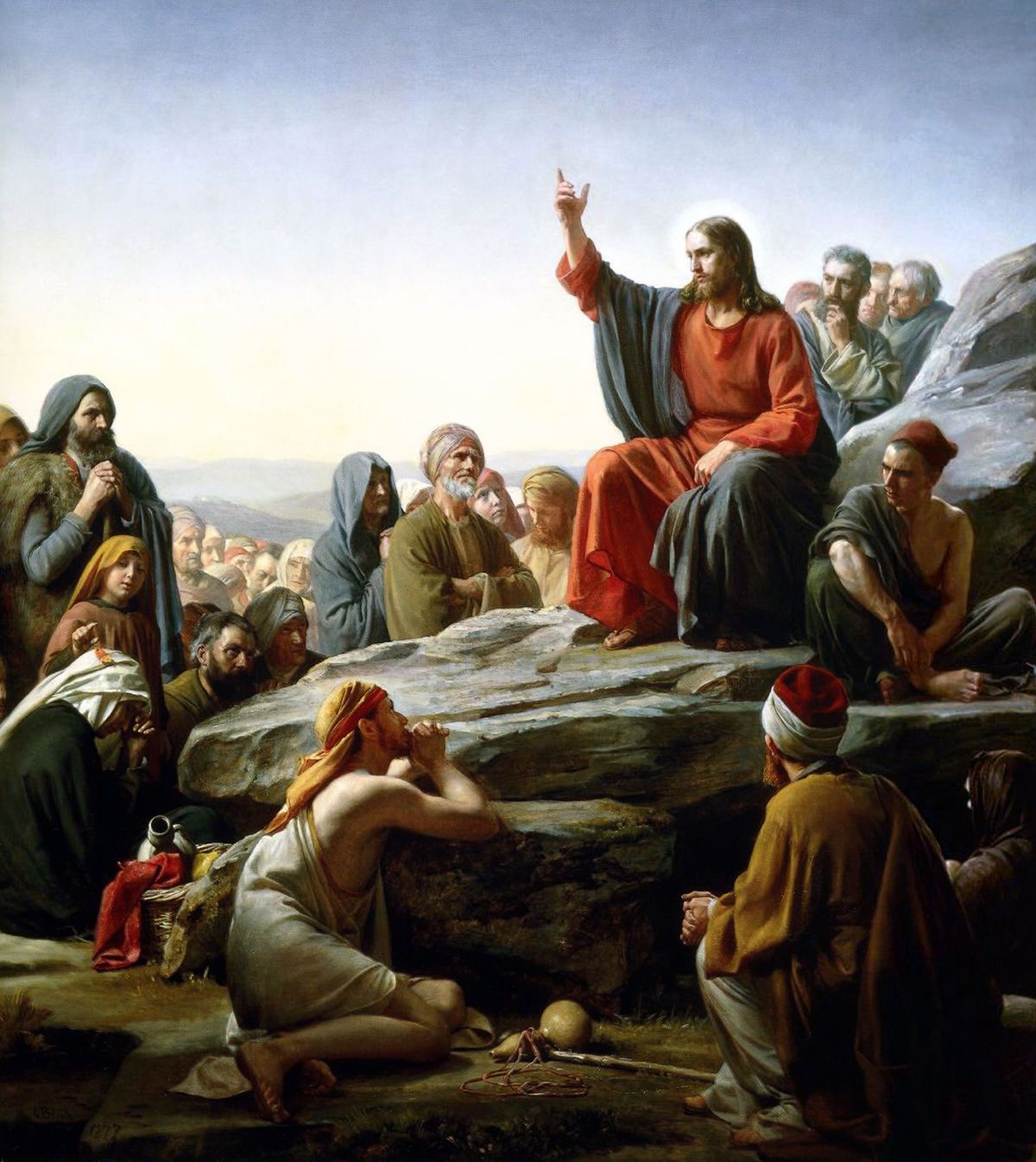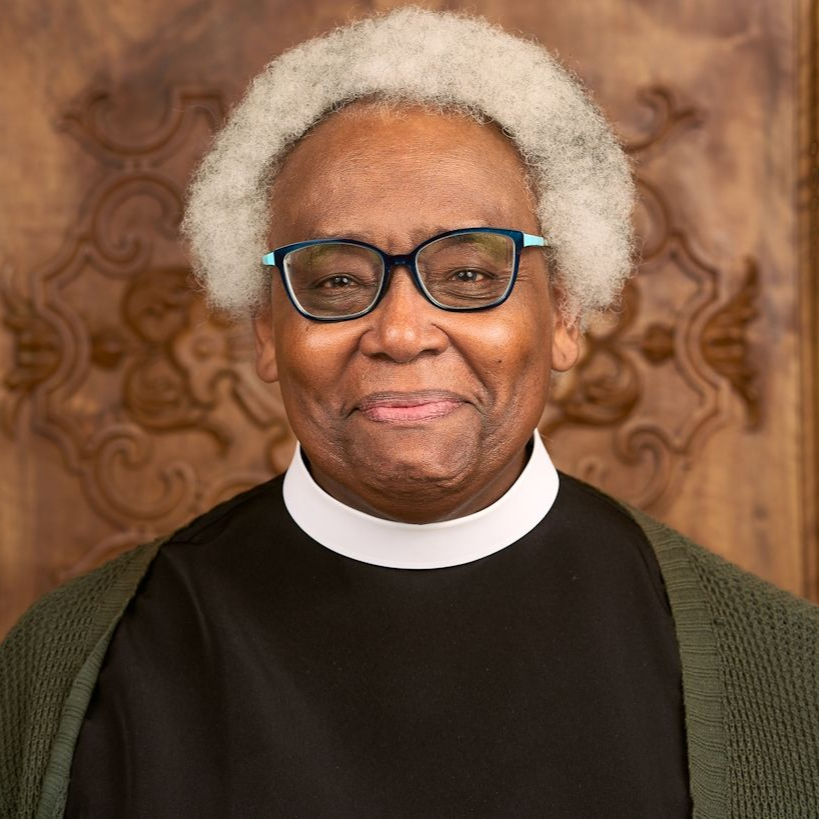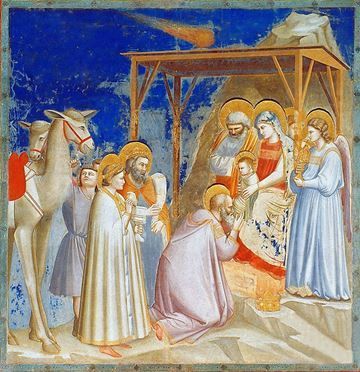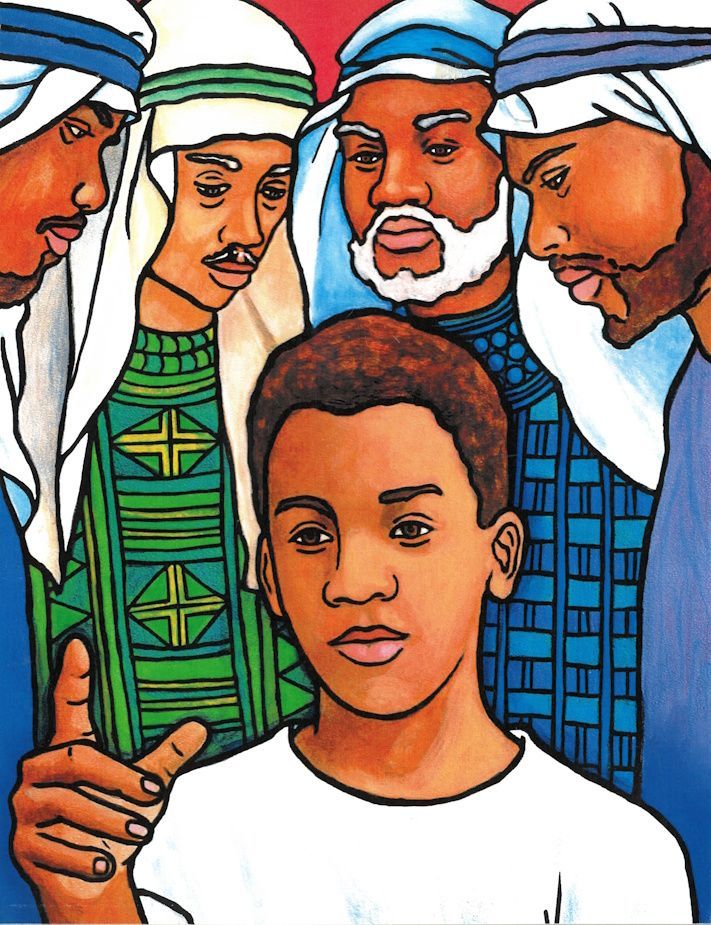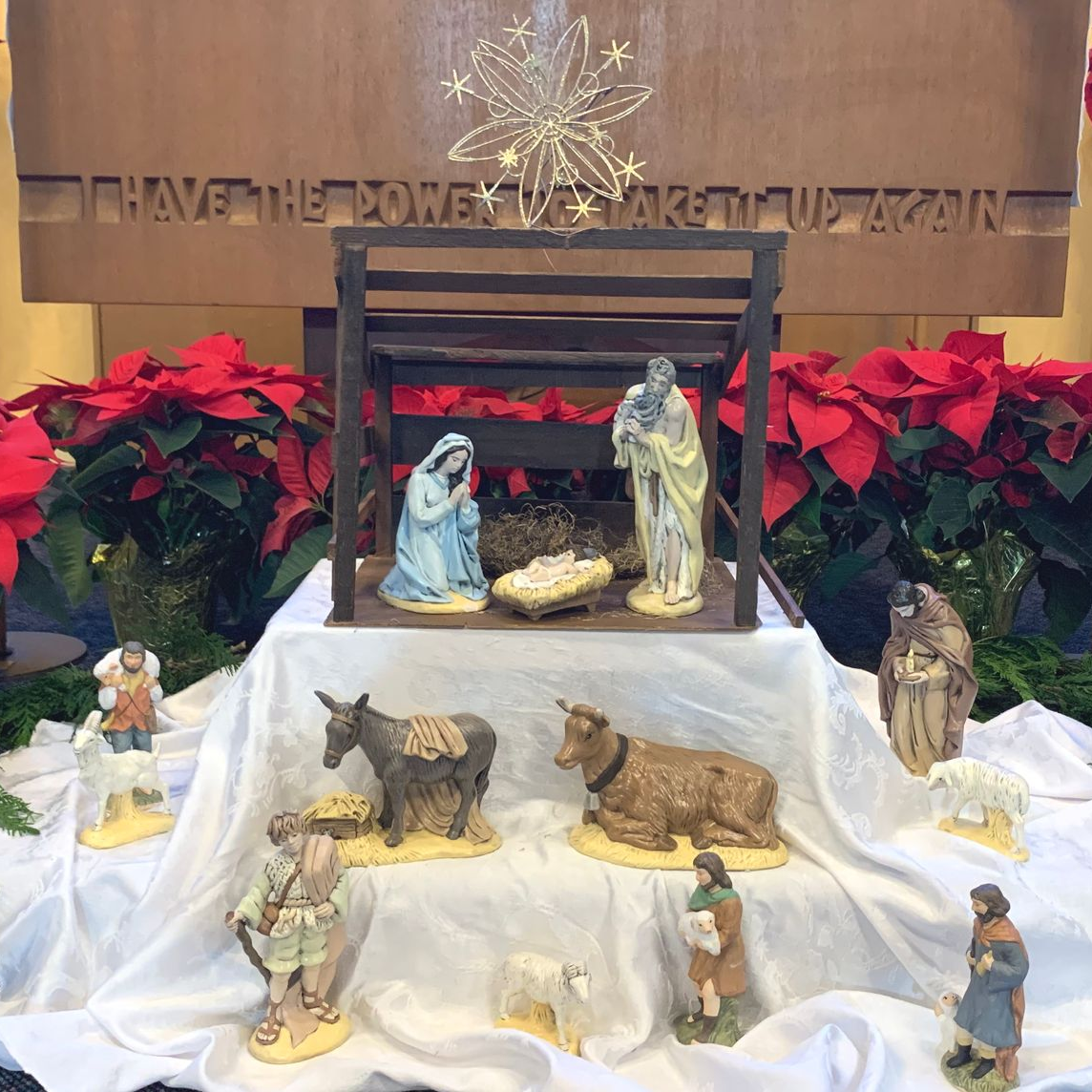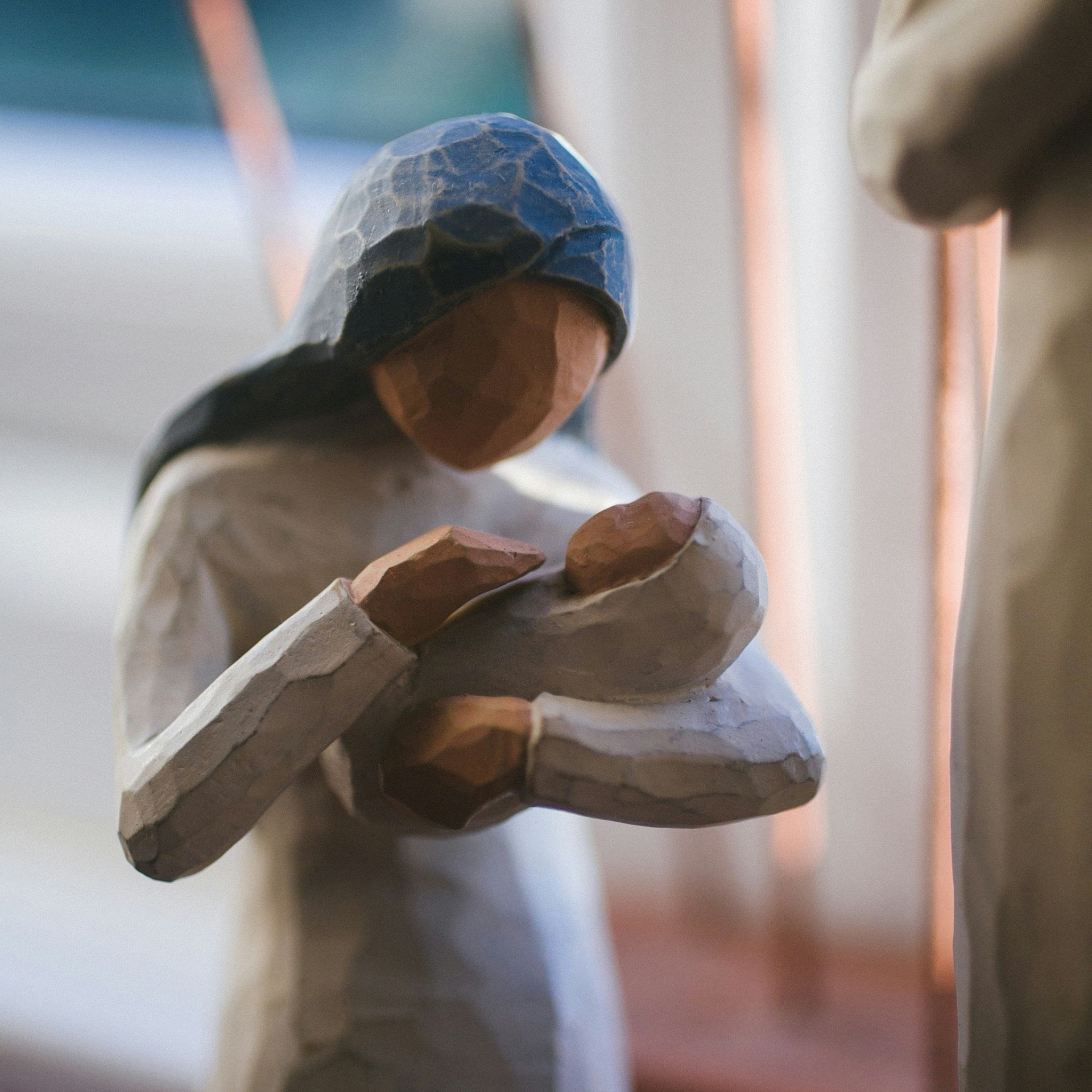¡Pura Vida!
How can we breathe the Holy Spirit onto others?
2025-26
sermon preached at Church of the Good Shepherd, Federal Way, WA
www.goodshepherdfw.org
by the Rev. Josh Hosler, Rector
The Second Sunday of Easter, April 27, 2025
Acts 5:27-32 ;
Psalm 118:14-29 ;
Revelation 1:4-8 ;
John 20:19-31
When I first told your former rector, Esther, that I was planning to take a sabbatical, I asked how she had spent hers. She said, “Well, for the first month, I napped on the couch.” I thought, there’s no way I would do that. I have too much energy! Then, in January, I found myself taking daily afternoon naps. I think I was making up for years of lost restfulness.
In February, Christy and I journeyed to Costa Rica. In the mornings we studied Spanish at the Máximo Nivel language school, and the rest of each day we enjoyed beaches, scenery, wildlife … and people! We were welcomed into a friendly community, and we also did some community-building of our own.
I have not brought back for you any sort of “finished product” of my sabbatical, as it were—no capstone project, no book or curriculum or blog, and not even any new musical compositions. That would have defeated the purpose of my time away. I’m a 3 on the Enneagram, which means that my default approach to life is, “Produce and perform! Produce and perform!” I needed not to do that for a good long while. I needed to remind myself who I am as a human and as a Christian—not necessarily as a priest.
To be healthy human beings, we all need regular opportunities to suspend the expectation of work. Yet even when we must work for our daily bread, we can do so joyfully. See, they have this saying in Costa Rica. If you’ve ever been there, you know what I’m about to say. Has anyone else been to Costa Rica? What is it they say there?
“Pura vida!” Yes!
Pura vida literally translates as “pure life.” People use it to say hello, to say goodbye, and to wish one another well—like the way people use “aloha” in Hawaii. You can use it to inspire optimism: “Pura vida!” According to one of our Spanish teachers, Davíd, you can even use it to express disappointment with someone’s behavior, with a shake of the head: “Pura vida.” Like, “You are not living life as you should right now!”
But pura vida does not simply mean, “Don’t worry, be happy.” It’s far deeper than that. I’ve come to see that pura vida means, “Place your anxiety and fear into a larger context. Life is pure gift, even where there is pain. Stop for a moment and notice that gift of pure life all around you and within you!”
Pura vida is a way of living life more patiently, more generously, and with more gratitude. But it’s also a way of giving life. To wish someone pura vida is to breathe onto them the breath of the Holy Spirit that has been given to us. On a tropical beach, pura vida can mean, “Oh yeah, this is the life!” But in any situation, it can mean, “Here we share the life that is pure life.” Or as Jesus would say, “Peace be with you.”
For today we hear a story of pure life—a story that is literally unbelievable. Jesus is dead … and then he appears among the disciples behind the locked doors they hoped would keep out any and all surprises. Jesus appears inside these locked doors, but then he invites his friends to touch him physically. He’s not a ghost. He’s alive! But he’s not alive like they are—how can he be? He has already died! No, this is a bigger and better life—a purer life—pura vida!
For the disciples, first comes fear of the unknown. Then comes the shocking gift of peace.
At first, Thomas misses out on this. But there’s a graceful experience reserved for him—a one-on-one opportunity to learn to trust in what had seemed impossible. “Thomas, your doubts are understandable, but they don’t make me any less alive. Welcome to a world much larger than the one inside your head. Pura vida!”
I hear these words spoken as well to the generations of people after the apostles who came to trust in this Good News: “Happy are those who have not seen and yet have come to believe.” That’s all the rest of us who weren’t there in the room that night. We can only get there the way Thomas did—late to the party, but no less blessed for it. Let those who came only at the eleventh hour have no fear—pura vida is for you, too!
When Thomas’s eyes are opened to this strange new reality of resurrection, he says a curious thing: “My Lord and my God!”
Did you know that nowhere in the Bible will you find Jesus claiming to be God? He may or may not imply it. You may think I’m splitting hairs here, but my point is that any notion of a trinitarian understanding of God—three-in-one, Father, Son, Holy Spirit—developed gradually over the next 400 years. You can begin to see this development within the Bible, but it’s not yet fleshed out. That doesn’t mean it’s not real—just that we shouldn’t expect to find it all carefully explained.
I don’t think any of the earliest apostles saw Jesus as God in any literal sense; this would have been completely foreign to first-century Jewish thought. I think they saw Jesus as a human being who was uniquely at one with God—whether they believed that was true from the moment of resurrection, the moment of his baptism, or in some cosmic sense in the earliest moments of creation. Their experiences still needed words that it would take centuries to develop.
We see Thomas’s proclamation show up in a different way in the Acts of the Apostles. Rather than “my Lord and my God,” we hear Peter proclaim Christ as “Leader and Savior.” Now, these words don’t hit the same for us as they did for first-century people oppressed by the Roman Empire. These words were reserved for Caesar Augustus, to whom imperial propaganda gave the specific title “Leader and Savior.” Who is in charge? Who is getting things done? Who keeps the trains running on time? Who is making life better for you by stomping out anyone who threatens us? Praise be to the Leader and Savior! All hail the king!
This is why we say Christ is our King—not because we believe he is anything like a literal king, but because we refuse to divinize the authority of any king or any human leader. There’s nothing wrong with loyalty to people and situations that are helpful and not hurtful. But if you’re baptized, it’s crucial never to give your ultimate loyalty to your government, no matter what kind of government it is. We honor the only true authority in the universe—and that authority is so humble that he showed up and allowed us to kill him!
When Peter proclaims the risen Christ as “leader and savior,” he’s insisting that Jesus is the only human window onto divinity. The emperor is a pretender whose arrogance makes him a fool. No matter how much power he wields, and no matter how many people he hurts with that power, his reign is doomed. In the meantime, we are forming a community that, at its best, will continually get in the emperor’s way.
It's no wonder, then, that the acts of the apostles always seem to run afoul of law enforcement. When Jesus spoke clearly enough about an alternative community that was to rely on love instead of fear … well, that empire lynched him. Literally. They hanged him on a tree. So wherever the ruling powers are unjust—and also wherever they don’t even obey the rules we have democratically given them, but rely instead on fear and cruelty—the baptized need to be out there making “good trouble.”
Yet I do need to say something more about this passage from the Acts of the Apostles, because it brings with it problems that have plagued the world ever since they were written. A lazy reading of the passage makes it looks like this is all about Christians versus Jews, and the language Luke chooses doesn’t help. Peter talks of “Jesus, whom YOU had killed.” The high priest says, “You are determined to bring this man’s blood on us.” If the high priest is set up in the narrative as the bad guy, we may think we’re supposed to say, “Yup, that’s right! This is your fault!”
Is this reading supposed to make us angry all over again about Jesus’ death? To relitigate it and to cast blame? That is not Peter’s purpose. Ultimately he is trying to share Good News: here is how it honestly played out, yet now all is forgiven, and all is reconciled! Peter’s proclamation is met with disbelief and anger, and can this be surprising? This is a disagreement among Jews, and the arguing was still hot when Luke was writing, some 50 years after the events he describes. But ever since, Christians have used passages like this as an excuse to persecute Jews—even to lynch them. As if we had learned nothing from Jesus—nothing at all.
I don’t have time today to go into all the insidious ways that anti-Semitism is spreading like a disease all over the world right now. But I am putting some thoughts together, and you will hear more from me about it. For today, suffice it to say that violence and cruelty of any kind is not pura vida. Whatever religion they claim as their totem, governments that rule by fear and intimidation place themselves in direct opposition to God.
But don’t think for a moment that you and I are immune. Controlling our environment through fear and cruelty is a temptation we are all prone to, because God’s world can be a scary place. “Do unto them before they do unto you,” right?
There will always be people who shore up their power by pitting the less powerful against one another. Don’t let them dictate the story of your life. No matter how fearful the world gets, our marching orders as Christians remain exactly the same: “Love one another.” That means living interdependently. It means walking straight through the uncertainty and relying on one another to strengthen us through it. It means giving up a degree of comfort so that others may simply stay alive.
Love casts out fear when we share the kind of peace the risen Christ breathes on his disciples. And it comes with a commission. Since true life could not be held long in the grip of death … what will you do next? Christ clarifies: “You have the power to work toward reconciliation. You also have the ability to withhold reconciliation. If that’s what you choose, what will you do with all that brokenness? Where’s the pura vida in that?”
We’re living through harrowing times that demand bravery from all of us. Have you thought about what you would sacrifice for the sake of others—to what lengths you would go to protect the vulnerable? How can we approach our fears from a pura vida perspective?
I commend to you this community of faith. Jesus moves from life to pure life—from pure life to purer life. This is the journey we’re all on. But when we remain isolated, we avoid opportunities to see that life in one another. You may be late to the party like Thomas, but there’s no fear or judgment in that. Will you walk with us at Good Shepherd, from vida to pura vida?



